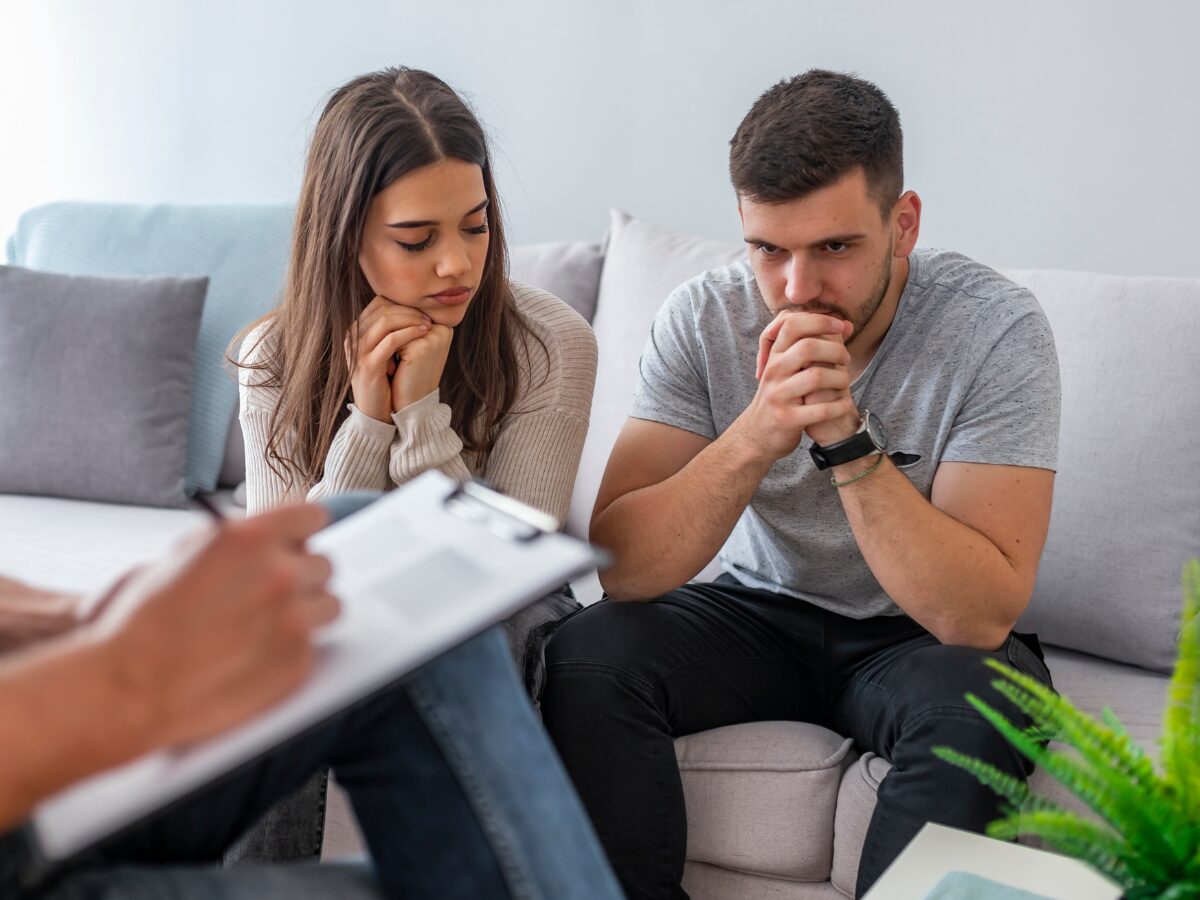Introduction
Every relationship encounters challenges, and many can be resolved through open communication, patience, and mutual effort. However, there are times when persistent issues prove difficult to navigate alone, despite your best intentions. Seeking outside help, such as couples therapy or counselling, can provide valuable tools and perspectives to address these challenges and strengthen your bond.
This article explores when it’s appropriate to seek external support, the signs that professional intervention might be beneficial, and how to approach the process together.
Why Persistent Issues Require Special Attention
Impact on Emotional Connection
Unresolved issues can create emotional distance, leaving one or both partners feeling unsupported or misunderstood.
Escalation of Conflict
Persistent problems often lead to repeated arguments, which may escalate in intensity and harm the relationship over time.
Erosion of Trust
Long-standing disagreements or unaddressed hurts can weaken trust, making it harder to repair and rebuild the relationship.
Difficulty Seeing a Solution
When emotions run high, it can be challenging to step back and view the issue objectively, hindering resolution.
Signs It’s Time to Seek Outside Help
Repeated Arguments About the Same Issues
If you find yourselves stuck in a cycle of recurring conflicts without resolution, professional guidance can help uncover underlying causes.
Breakdown in Communication
Difficulty expressing feelings, constant misunderstandings, or shutting down during conversations are signs that communication tools may be needed.
Resentment or Blame
When one or both partners harbour resentment or frequently assign blame, it’s time to address these dynamics with a neutral third party.
Avoidance of Sensitive Topics
If certain subjects are consistently avoided to prevent conflict, it may indicate deeper issues that require attention.
Feeling Stuck or Hopeless
If either partner feels hopeless about the relationship’s future, external support can provide new strategies and perspectives.
External Stressors Impacting the Relationship
Major life changes, such as moving, career shifts, or family pressures, can strain even the strongest relationships. A therapist can help navigate these transitions.
Types of Support Available
Couples Therapy
A licensed therapist helps partners work through challenges by improving communication, understanding underlying issues, and fostering emotional intimacy.
Individual Therapy
One partner may choose to address personal challenges, such as past trauma or emotional patterns, that impact the relationship.
Support Groups
Connecting with others who share similar experiences can provide valuable insights and emotional support.
Online Resources
Books, courses, and relationship-focused content can supplement therapy or provide guidance for couples hesitant to seek in-person help.
How to Approach Your Partner About Seeking Help
Choose the Right Time
Bring up the idea during a calm moment when both of you are relaxed and open to discussion.
Express Your Intentions Clearly
Frame the suggestion as a way to strengthen the relationship, not as a criticism.
Example: “I think working with a therapist could help us understand each other better and improve how we handle challenges.”
Highlight the Benefits
Reassure your partner that seeking help is a proactive step, not a sign of failure.
Example: “I’ve read that couples therapy helps many people build stronger relationships, and I think it could be good for us.”
Be Patient and Understanding
If your partner is hesitant, give them time to process the idea and address any concerns they may have.
What to Expect From Professional Help
A Safe Space for Open Communication
Therapists create an environment where both partners can express their feelings without fear of judgment.
Tools for Conflict Resolution
Learn practical strategies for navigating disagreements and resolving conflicts constructively.
Insights Into Relationship Patterns
Therapists help identify and address unhealthy dynamics that contribute to persistent issues.
Rebuilding Trust and Connection
Guidance from a professional can facilitate the process of healing and strengthening emotional bonds.
When to Prioritise Seeking Help Immediately
Issues of Abuse or Control
If there are signs of physical, emotional, or verbal abuse, seeking help should be a priority. Consider reaching out to specialised support services.
Significant Emotional Distance
If one or both partners feel emotionally disengaged or indifferent, professional intervention can help rebuild connection.
Mental Health Challenges
Conditions such as depression, anxiety, or addiction can strain relationships and often require both individual and couple-focused support.
Major Life Crises
Events like grief, infertility, or financial crises may necessitate professional guidance to navigate together.
How to Choose the Right Professional
Research Credentials and Expertise
Look for licensed therapists with experience in couples counselling or your specific area of concern.
Consider Compatibility
It’s important to feel comfortable and understood by the professional you choose. Schedule an initial session to assess fit.
Explore Practical Options
Online therapy platforms, sliding scale fees, or local support groups may provide more affordable or accessible alternatives.
Prioritise Commitment From Both Partners
Effective therapy requires active participation and commitment from both individuals.
Benefits of Seeking Outside Help
Breaks Unhealthy Patterns
Professional intervention can help identify and change recurring dynamics that fuel conflict.
Fosters Growth and Understanding
Therapy provides tools to navigate challenges while deepening emotional connection and empathy.
Improves Communication
Partners learn effective ways to express their feelings, needs, and concerns constructively.
Reinforces Relationship Resilience
Working through issues together with guidance strengthens your ability to navigate future challenges.
Conclusion
Seeking outside help for persistent issues is a proactive and courageous step that demonstrates your commitment to the relationship. Whether it’s through couples therapy, individual counselling, or support groups, external guidance can provide the tools and insights needed to address challenges effectively.
Every relationship faces hurdles, but you don’t have to navigate them alone. By reaching out for support, you and your partner can work together to overcome obstacles, rebuild trust, and create a stronger, healthier foundation for your future together.
References
- Relationship help: Making it permanent – Into the Light
- Signs Your Relationship Needs Help – Prosper Health Collective
- How to fix a broken relationship: 10 steps to mindfully rebuild – Calm


